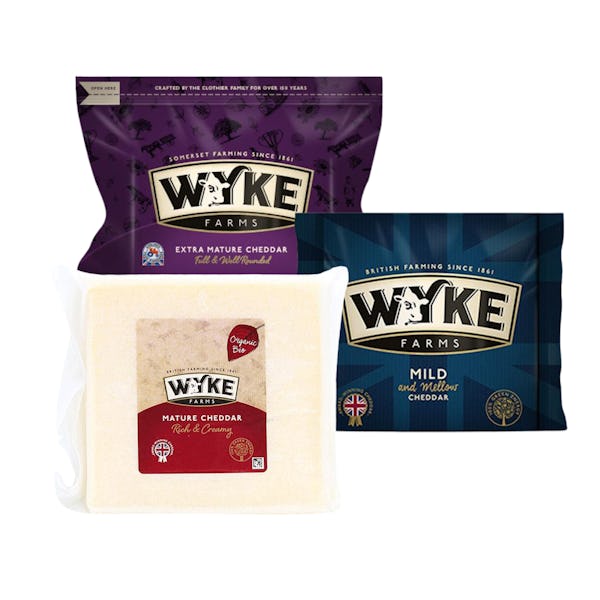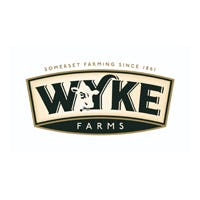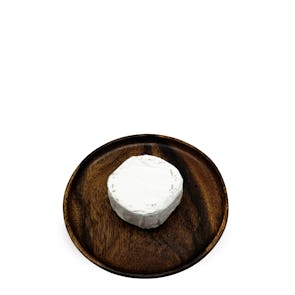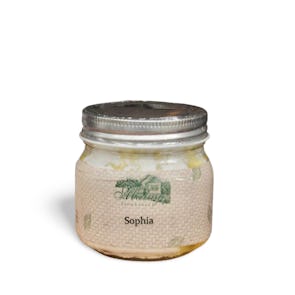
TASTING NOTES FROM THE CURATOR
Our Wyke Farms Cheddar Cheese comes in three kinds: Mild, Mature, and Extra Mature. All of these hard cheeses are made with pasteurized cow’s milk from England, and are all absolutely delicious.
The Mild cheese is young and creamy, with a smooth texture and subtle taste. Their Mature cheese was a winner in the World Cheese Awards, and has a clean, creamy texture, and rounded, silky flavors. The Extra Mature is their bestseller, and was matured for 12 months. It has a deliciously tangy and full flavor.
PREPARATION AND PAIRINGS
Wyke Farm Cheddar Cheeses are very versatile. Use them for your grilled cheese sandwiches, or gently fold them in into fluffy omelets. You can use it for frittatas, fondue, quesadillas, nachos, poutines, croquettes, muffins, quiches, etc. Really, these cheeses are great for anything you want cheddar in!
GRANDMOTHER’S RECIPE
The Clothiers have been farming in Somerset for over 150 years. Their cheddar, in particular, has a place of great pride. Their award-winning cheddar is still made according to the secret recipe by their “Grandmother Ivy.”
Ivy was born in 1908 in Somerset to a farming family. She married Tom Clothier, a dairy farmer, in 1927, and together, they continued farming and cheesemaking in Wyke. Ivy began making her now-prized cheddar, which by 1939, was already in great demand in various local delis and shops.
In 1980, their son John leaves the Farmhouse Cheesemakers Co-operative to establish Wyke Farms, bringing with him all the family recipes. Wyke Farms is still a family business, making traditional and delicious Farmhouse Cheddar, and is now being sold in more than 150 countries worldwide.
Storage Instructions
Cheeses (except brined ones in jars) should be stored in the crisper or the butter drawer of a refrigerator, not on the shelves themselves. This is to help regulate their temperature and humidity levels—and prevents the formation of mold. Once opened, they should not be kept in their original packaging. Hard cheeses should ideally be wrapped in cheese paper after opening. An alternative is to wrap them tightly in parchment paper to allow them to breathe. Moisture is not as big a problem for hard cheeses as it is for other kinds, but don’t forget to write up a label with the date you first opened the package and to replace the parchment paper every time you open the cheese. Kindly pay attention to the best before date label when you receive your cheese. Consume prior to the date indicated.



